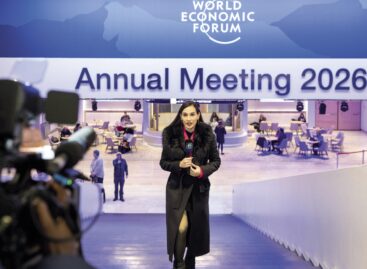ESG maturity increases the value of the target company in the eyes of investors
Eighty-two percent of the surveyed investors stated that ESG topics are currently being examined during transaction processes, and 67 percent of them would pay a premium for a target company with a mature and coordinated ESG strategy.

(Fotó: Pixabay)
According to a recent KPMG survey of more than 150 investors operating in Europe, the Middle East and Africa, investors actively integrate Environmental, Social and Corporate Governance (ESG) aspects into their investment decisions. What’s more, according to the results of the survey, the proportion of investors who plan to carry out an ESG due diligence as part of the transaction process in the future nearly doubles, while the proportion of those who will not have an ESG due diligence carried out drops to only five percent. The results of the recently released KPMG 2022 EMA ESG Due Diligence Study by KPMG show that the majority of investors (67%) are willing to pay a premium for target companies that demonstrate a high level of ESG maturity in areas that fit into investors’ ESG strategies. Nearly a fifth of investors said that they would be willing to pay a five percent or higher premium.
“Sustainability has become a defining megatrend that affects the operation of businesses worldwide, and the transaction market is no exception. Based on the experience of the KPMG offices, investors in every region and every sector actively incorporate ESG aspects into their investment decisions,” stated István Szabó, head of sustainability for the KPMG CEE region. “We have to expect that ESG due diligence will become more and more common in the context of transactions as well.”
However, based on the results of the KPMG study, it can also be concluded that there is no agreement regarding the content of the ESG due diligence
Target companies are not always able to provide adequate quality data or documentation. As a result, professionals often encounter difficulties in quantifying their findings and the related financial effects and value creation opportunities.
“Investors face a number of challenges when incorporating ESG due diligence into the transaction process,” said Clive Adendorff, COO Partner at EMA ESG Hub. “Customers want to know “what counts as good” compared to their competitors and market expectations. In addition, they want to make sure that they have a full view of the potential opportunities in addition to the risks.”
The KPMG 2022 EMA ESG Due Diligence Study analyzes the results of surveys and personal interviews with investors and draws conclusions about the activities of transactional decision-makers in the field of ESG. The authors concluded that experienced ESG due diligence experts coordinate the procedures performed during the due diligence with the overall corporate ESG strategy, and connect the findings of the ESG due diligence with measures taken after the closing of the transaction.
Avoiding risks is important – but in addition to avoiding risks, experienced ESG due diligence specialists focus more on ESG-related value creation opportunities after the closing of the transaction,” said István Szabó, KPMG CEE region sustainability manager. “They see a monetary value in the early recognition of potential opportunities, so they invest in processes aimed at exploring opportunities.”
As one of the world’s leading transaction advisors and sustainability advisory providers, KPMG advisors can help connect transactions and ESG considerations and are at the forefront of developments in this rapidly evolving field. They work with a range of leading strategic and financial investors to identify and develop ESG transaction strategies and processes that meet investors’ unique ESG needs and objectives.
“Based on the results of the survey, two types of ESG due diligence can be distinguished: dedicated (specifically targeting ESG topics) ESG due diligence, and fragmented ESG due diligence, during which the topics within the scope of ESG are analyzed according to relevance in financial, tax, legal, business and technical they are examined separately within the framework of due diligence,” said Ákos Pájer, director of the Transaction Advisory Group of KPMG Hungary. “While strategic investors use both methods, financial investors overwhelmingly prefer dedicated ESG due diligence.”
Related news
Davos 2026: the risk premium has appeared on store shelves
🎧 Hallgasd a cikket: Lejátszás Szünet Folytatás Leállítás Nyelv: Auto…
Read more >Related news
Change in Rossmann Hungary’s leadership: Kornél Németh decided to move towards new challenges in 2026
🎧 Hallgasd a cikket: Lejátszás Szünet Folytatás Leállítás Nyelv: Auto…
Read more >









